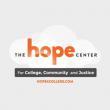
When Dr. Sarita Cargas began studying basic needs insecurity at the University of New Mexico (UNM), she asked students to share stories about times they could not do their work because they were hungry.
“They talked about having headaches and trouble staying awake in class, feeling anxious that other people would hear their tummies grumbling,” said Cargas, an associate professor of human rights at the UNM Honors College. “That broke my heart.”
Students experiencing basic needs insecurity are struggling to access reliable housing, nutritious food, or both. Food-insecure students are more likely to fail or drop out of education, according to another 2021 UNM study.
Although New Mexico is one of the poorest states in the nation, Cargas said her findings still surprised her. Just over 25% of UNM students experienced food insecurity and 42% of UNM undergraduate students experienced some kind of basic needs insecurity in 2020 and 2021.
One resource that could help keep food insecure students on track to graduation is the federal Supplemental Nutrition Assistance Program (SNAP), which offers a maximum of $281 each month for single-person households to go towards the cost of food. A new report from The Hope Center for College, Community and Justice at Temple University calls attention to the number of eligible students who do not take advantage of SNAP benefits and how states and institutions can connect more students with life-changing support, including taking advantage of COVID-19 related public health emergency exemptions to SNAP requirements.
Eligibility for SNAP depends on each state’s requirements. Nineteen states and D.C. set max income eligibility at 200% of the federal poverty level, while other states set the limit lower. Students who attend school at least half-time must usually meet certain conditions to qualify, like working at least 20 hours per week.
The public health emergency exemption has changed that requirement—through spring 2023, students with $0 in expected financial contribution, or those who are eligible for federal or state work-study, do not have to meet the 20-hour a week work requirement for SNAP.
“It’s absolutely valuable for students to apply for SNAP now while it’s a little easier, and it’s valuable for colleges to provide that information to students,” said Thomas Hilliard, senior policy analyst at The Hope Center and one of the authors of the report.
But not all colleges are providing that information to their students, said Hilliard. According to a 2018 U.S. Government Accountability Office report, 69% of college students eligible for SNAP did not receive benefits. Through disaggregation, Cargas’s Basic Needs Survey of UNM found that 28% of Latinx, 46% of Black, and 49% of Native American students identified as food insecure.
“This is a social justice issue, an equity issue,” said Cargas. “If minoritized populations are the most food insecure and therefore the most likely to withdraw from college, we have to address this issue in the name of racial justice.”
Reasons for the “SNAP gap” vary, Hilliard said. Some students are simply unaware of the SNAP program. Others are deterred by the difficulty in applying for SNAP, and some avoid SNAP because of cultural stigma around accepting public benefits.
“Many students are prone to think of receiving a public benefit as a form of dependency and to feel shame personally, connected to the belief in personal responsibility that’s embedded in American culture: if you’re broke, if you’re hungry, if you’re couch surfing because you can’t afford the rent on your own place, it’s your fault,” said Hilliard. “And the most important breakthrough that colleges have made in student outreach is helping them understand that they’re not alone, and that these are widespread societal problems.”
Cargas said that food insecure students often feel isolated, so addressing food insecurity will require a louder, more prominent acknowledgement by institutions, faculty, and staff.
“Students suffer in silence. [Faculty] have to make it known that [food insecurity] is a problem, talk about it in our classes, put it in our syllabi,” said Cargas. “We talk about academic problems all the time—we advertise our tutoring programs—now we have to make basic needs as much as issue that needs attending to, that universities and colleges have the resources for.”
At UNM, a Basic Needs Coordinator has been hired to help students navigate the complicated red tape around applying for benefits, and the campus’s food pantry has been moved to a more centralized location. It is now connected to running water and has refrigerators for more food options. But Cargas said more needs to be done.
“The food insecure students that are going to college and university are courageous. They are motivated by improving their lives, their families’ lives. Often, contributing to society is one of their ambitions,” said Cargas. “These are really hard-working people dealing with the stress of food insecurity, maintaining a job, and fulfilling course requirements. It takes a lot of strength and courage. That’s what the research has taught me, how impressive these young people are and worthy of support.”






